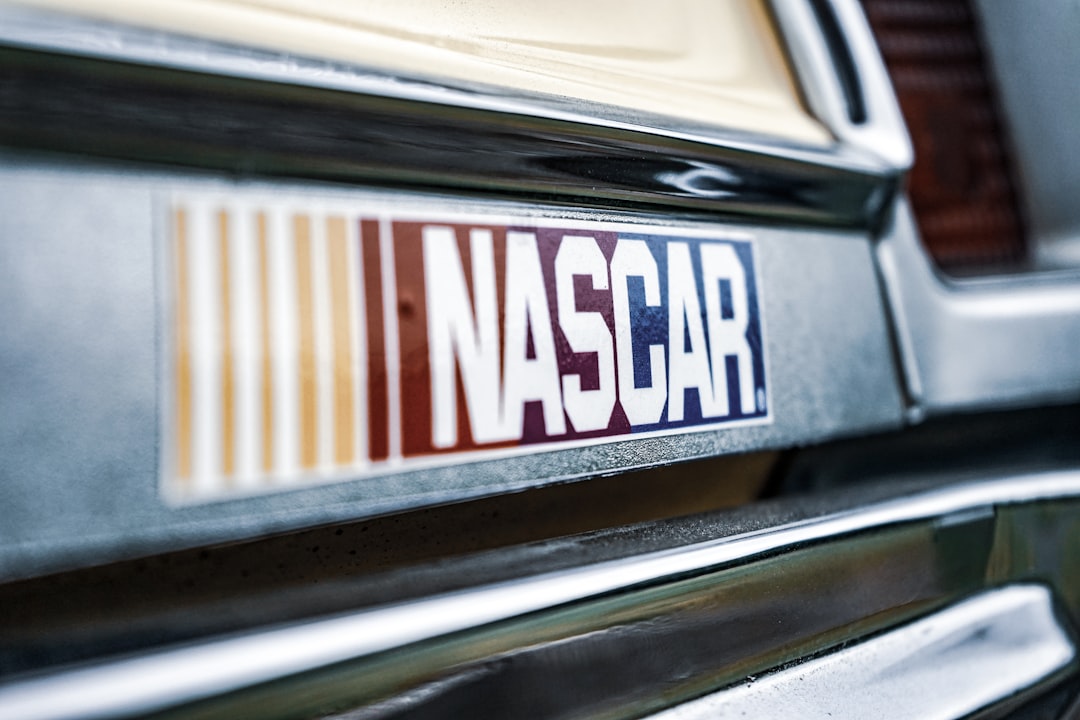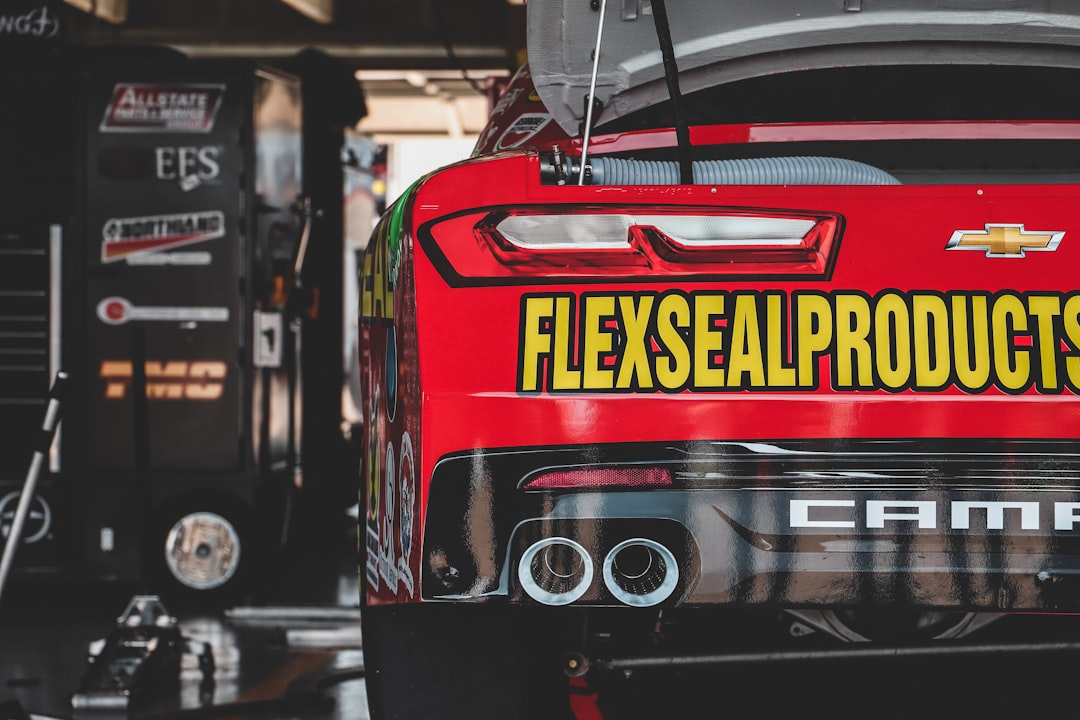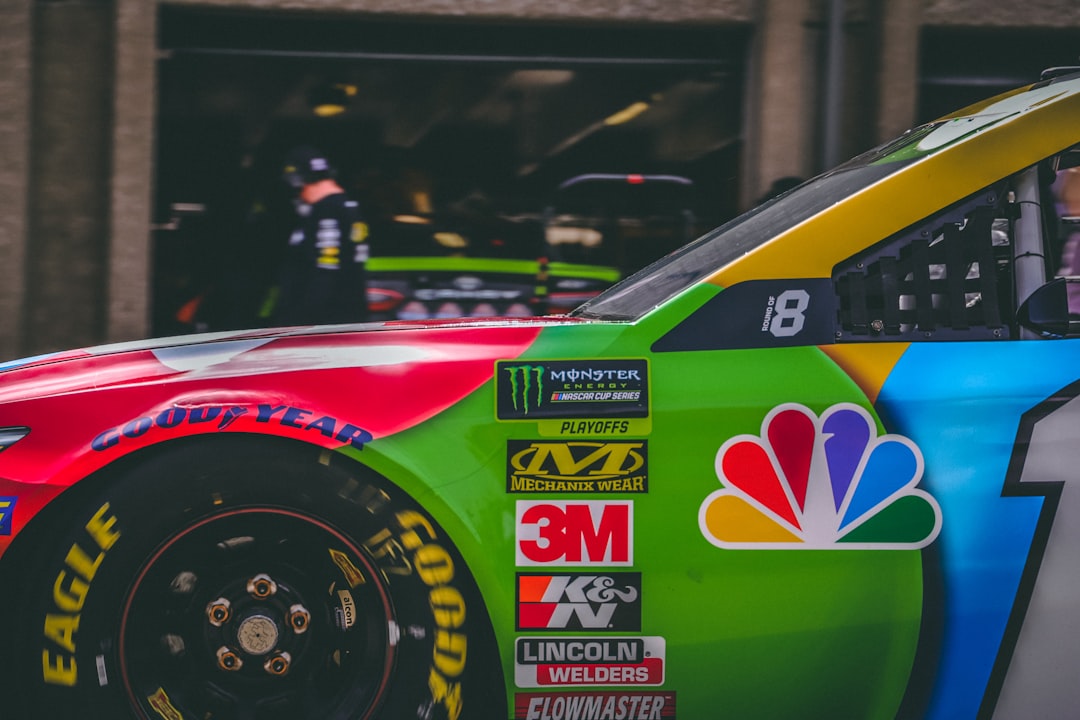
By Walt Hickey
Welcome to the Numlock Sunday edition.
This week, I spoke to my friend Neil Paine, a sportswriter at FiveThirtyEight who can also be found at Neil’s Substack. I’ve been following some recent spat going on in NASCAR between ownership and the different charters; here’s a recent thing I covered about it:
NASCAR team owners collectively boycotted a quarterly meeting with NASCAR leadership over a kerfuffle over the sport’s business model, which they argue pays track owners considerably more than it pays the racing team owners. The $8.2 billion media rights deal inked prior to the 2015 season splits the money 65 percent to the racetracks, 25 percent to the teams, and 10 percent to NASCAR itself, though there are just two track operators: Speedway Motorsports and, well, NASCAR, which owns most of the tracks on the Cup Series. Team owners don’t like this arrangement, and argue that they have to spend a great deal of time trying to recruit sponsors in order to make their money, saying that sponsorships are 60 percent to 80 percent of the budgets of the 16 chartered teams.
Fascinating! It’s a corporate battle with billions on the line! What’s not to love here! I knew Neil was into NASCAR and I wanted to talk to him about how the sport got into this mess and what the heck happened to it.
Neil can be found at FiveThirtyEight and Neil’s Substack. Incidentally we can also be found out our hockey-related friend podcast A Couple of Goons.
This interview has been condensed and edited.
All right. Hey Neil, how's it going?
Hey, Walt. Good to be here.
People know you from many different places, primarily FiveThirtyEight, where you're a sports writer. But I wanted to talk to you today about a thing that I think is going to be very off-topic for a lot of readers in my newsletter and maybe even some reviews in your work, which is some extremely fascinating stuff that's happening in NASCAR, a league that has long existed but has diminished in notoriety.
You and I have been talking a little bit about this on the side and I am just endlessly fascinated by some of the machinations going on in it. I just wanted to have you on to talk all about it. Do you want to talk a little bit about your experience with NASCAR and what drew your attention to it?
Yeah, so I'm from the South. I'm from Atlanta and grew up watching the races and following the sport as a child. I think that that was something that was a lot more common at that time. We're talking about the '90s and the early 2000s being the heyday of not just my fan interest but also a lot of people's fan interest in the sport.
I've recently gotten back into it over the past couple seasons, I don't really know why. I've definitely gotten more into motor sports in general with Formula One also coming back on my radar. That has actually been very popular among American audiences, I think, since you saw the Netflix series Drive To Survive and just people getting into the dramatic aspects of that, not necessarily maybe the on-track drama, but the personalities and the soap opera between the drivers and the teams, and all of the different backstabbing. Machinations is a good word for it that you used earlier.
You see that in pretty much every motor sport though. I think that people, if they wanted to expand their horizons to a sport like NASCAR, there are so many beefs between drivers in NASCAR. The great thing about NASCAR is in Formula One, you do see sometimes drivers, they will wreck each other in the sense that they won't give someone space around a turn or something and they might touch wheels, or they might run into someone. But when you run into someone, it's the end of their day because the open wheel cars are pretty fragile, comparatively speaking.
Whereas in NASCAR, these are big freaking tanks of vehicles that can hit each other. Often, there’s this term, "rubbing is racing," where basically if you're not bumping people while you're out on the track, you're not really fighting for position. You can hit someone and as long as you don't put them into the wall, you can keep going.
I think that that is unique in the way that it feeds into the aspect of rivalry and aspect of animosity between drivers, because you can get back at someone later in a race if they did you dirty earlier in a race, in a way that in Formula One, if you hit and mess up your front wing or whatever, you're both done for the race.

Neil, I'm exhausted at the fact that you found another sport that is basically just hockey.
Yeah, I know the checking aspect, definitely, the full contact aspect bleeds over between the two, I think.
That's cool. I didn't know that you followed it when you were a kid, that's nice. I guess you got on my radar recently because there's beef on the track obviously, but there's also lately a lot of beef between NASCAR itself and the people who own the franchises. It's got this really interesting structure. Do you want to talk a little bit about that?
Yeah, so starting in 2016, they put into place what's called the charter system, which for people that don't know, basically there are like 40 cars on the track for every NASCAR race. And in the past, you showed up for the race weekend and it didn't matter if you were a low tier team or one of the best; you still had to qualify and make a certain lap time and be among the top 40 or so qualifying cars to make it into the race on Sunday and, therefore, to get paid for the weekend.
At the peak of NASCAR, if you go back and watch some of the old broadcasts, you'll see they list out a dozen or more teams that didn't qualify. So, cars that tried, they made the effort, they came out to the track, they got everything ready and they just didn't go fast enough to make the cut and they didn't end up making any money from that.
Starting in 2016, they put into place these charters, which guaranteed that 36 cars would at least be able to have entry into the race. So, it only left four chances for teams that weren't part of the charter system to scratch and claw their way into the field for any given race. For those 36 teams, it offered a lot of cost certainty and also income certainty and it made things a lot easier for their dealings with sponsors, which, we'll probably go into as well, is a huge deal for NASCAR teams, more so than maybe any other sport.
And so this charter system, it was put into place to make it more attractive to invest in a NASCAR team. I think since you've seen those go in, you've seen that Michael Jordan owns a team now, or co-owns it, the 2311 racing team, and you're seeing people because they can now latch onto these franchises, it's essentially the same ideas like the New England Patriots and the Atlanta Falcons. The teams that go into the charter is a car and the car number that goes with it. Sometimes the same owner can own multiple charters. So, Joe Gibbs Racing — Joe Gibbs is a former NFL coach who also runs a super successful NASCAR team — he has four charters, so he has four different cars on the track. But some teams only have one charter and these charters can be bought and sold between the different team owners as well. They can transfer the rights to the charter and that has allowed the value of those charters to go up.
But the problem is that the charter system, when it was put into place, it has to be renewed. It's not like a permanent fixture in the way the sport is structured. So, there's some opposition at the top of the NASCAR food chain, because NASCAR itself is just the governing organization that oversees all of the races.
It has said, "We're not really sure if we're going to renew the charters." And the teams are like, "You better renew the charters because this is the one thing that's driving our value in investing in your sport and making it more attractive for people to come in as owners and know that they can have that secured spot." That's a big part of this battleground, like you mentioned, between NASCAR, the organizing body, and the teams themselves.
There are also the racetracks in the mix as well. The way that the money is split for a television contract, for instance, they have a big TV deal coming up I think after this season, maybe the NBC rights are up or whatever. They have to figure out a new TV contract and then figure out how that pie gets divided up among the teams, NASCAR itself, and the racetracks.
The teams have complained that pretty much all of the money, or the overwhelming share of the money, goes to NASCAR itself and the tracks, and that they're not really getting that much, and it's much less equitable than you see in other sports, where in the NFL or Major League Baseball, you see roughly a 50/50 split between the teams and the players.
In their mind, they're thinking of themselves as franchises that then supply the talent, the players, or in this case the drivers to the league, which would be NASCAR. NASCAR sees it differently. They see the drivers or the teams and drivers as independent contractors, and just part of this mix that also includes the racetracks that they have to coordinate with to stage the actual race events themselves.
Combine that with the fact that advertising makes up a huge share of the revenue for any of the teams and teams are starting to lose really high profile advertisers. We’re talking about the early to mid-2000s, the heyday of NASCAR, you had a lot of companies that just seemed like it made a ton of sense for them to be in NASCAR. Lowe's Home Improvement or the Home Depot, or just iconic brands being in the sport, that then you could associate with the driver. In a lot of cases the driver was in TV commercials — Tony Stewart was in Home Depot commercials — and it was really fed into a relationship where this sport, and by extension the driver in it, are the face of our brand and we have value in that.

Those brands have left NASCAR over the past decade or so, and you're not seeing them really replaced with the same level of iconic brand. A lot of the cars that you see out on the track now are obscure, really more like niche motor racing, or car-related brands, and certainly not the sort of shiny big type of brands that you saw in NASCAR's heyday.
That's trouble.
That is big trouble, because advertising revenue from having these cars basically be rolling billboards for a particular brand, when the big brands leave, you get less advertising revenue. Since the teams are so dependent on that, that increases their desperation to leverage the charter system as an alternative means of getting revenue.
This money bit's fascinating, and I want to get into sponsorship, so we'll get into that in a little bit.
But first, I want to get into one other thing real quick, which is NASCAR itself. Most other leagues are large nonprofits, like maybe they're Major League Baseball and they have a century-old antitrust protection. They tend to be organizations that are either owned by the franchises or exist as a not-for-profit that basically serves as an intermediary between the franchises.
But NASCAR is just a family business!
Yeah, the France family, which goes back to this guy big Bill France who essentially created NASCAR. I mean, there were unaffiliated, loosely-run stock car races in the South before he came along, but he was the one that was able to wrangle together the support of all of those different factions and pull them into one system that then ran a series of circuits that became NASCAR. And it was all centered around things like the Daytona 500, which used to be literally run out on the beach of Daytona, Florida.
And they built the Daytona Motor Speedway and they built Talladega, the other huge super speedway in Alabama. And you can see why the France family, and it's now run by his son, that they see it as being an extension of their father's legacy to continue running it. Bill France, he ran things, I don't want to say with an iron fist, but it was what he said went back in the day. A lot of what he chose to do with this sport was responsible for growing it. You couldn't really argue with his choices because the sport was making so much progress.
Under the leadership of the rest of his family, though, you can take issue with that, and I think that's why maybe the France family and NASCAR itself as the central organizing body has lost some of their ability to have unchecked power over the sport, because a lot of the decisions that were put into place to try to make the sport more popular and capitalize on its moment of popularity in the 2000s have backfired and drove away the existing fans while not really adding new ones.
Fascinating. The money split is wild, because now I want to talk about the tracks, which, I was reading up on it and the tracks get 65 percent of the money from the TV deal. They're a huge factor. And then I read a little more, and it was like there are two track operators. And one of them's NASCAR!
I mean NASCAR, when they pay the tracks, they're actually also paying themselves. That goes back to the analogy to a sport like the NFL, where again the teams and drivers want it to be like, "Okay, Joe Gibbs Racing is the Patriots and yeah, Hendrick Motor Sports is the Eagles," or whatever. But NASCAR almost sees it as the tracks are the franchises, because the tracks are where they're actually holding the events, and the teams are just the players. The Eagles can cut some defensive back, but they're still the Eagles afterward.
Whereas in the case of the teams, they're like, "Can you really have a sport without Denny Hamlin? Can you have a sport without Martin Truex Jr.?"
That's probably the most similar aspect of this fight to the fights that you see in other sports, which are between the owners, who are represented by a Rob Manfred or a Roger Goodell type of commissioner, and the players; the players are making the argument that we are the sport, people come to see us, they don't come to see the laundry that the players are wearing in the form of uniforms.
You see parallels of that in this NASCAR spat where it's like, are you really coming for the track or are you coming for the players or for the drivers? And you can see why they are coming for the track in a lot of ways. That's what makes this more complicated, is because the tracks are so ingrained into the culture of the sport. Could you have a NASCAR without a Daytona or a Talladega? The tracks themselves make up so much of the fabric of what we think of as NASCAR.

Which is true, but you can have a race without Daytona and the answer is F1. F1 is in Vegas, now they're in Miami; they're eating their lunch domestically. It's interesting that you can watch this, if you look at it very closely, it's like, “Oh yeah, NASCAR totally has the advantage because people come for the tracks, not the drivers.” And then if you take two steps back you're like, "Oh wait, no, there's other racing in the world."
Well, and there are other sports as well, and that's really interesting. NASCAR was in a position of real relative power in the mid-2000s. In 2005 I think they were the second-most watched sport in the country behind only the NFL. That was the peak moment of the sport, where all of the big advertisers were in on NASCAR as the fastest growing sport in America.
Wow.
The story of NASCAR since then has been a story of really steep decline, I think, in both viewership, money from some of those advertisers, and just general fan interest in a lot of ways. The sport is no longer at the peak of its space in the cultural zeitgeist, to say the least. And there are a lot of reasons for that that I think nobody can really fully agree on.
Like what?
Well, in my opinion, the biggest reason is that they put in trying to capitalize on the success and looking around at the other sports leagues and thinking, "Well, they have playoffs, so we need a playoff system as well. We can't have a situation where some guy is so far ahead in the standings in the last handful of races of the season that why would you watch? We need to manufacture some drama late in the season, the same way that every other sport does with its playoffs."
So, they put in this thing called the “Chase for the Cup” starting, I want to say it was in 2004 or 2005, was the first year that they put it in.
The problem has been that the rules around the chase keep changing. It's a very convoluted system. If you think about the playoffs in other sports, it's pretty straightforward, right?
Yeah.
At the end of the regular season, every team that doesn't qualify for the playoffs is eliminated, and then you have head-to-head competitions until you whittle it down to the Super Bowl and whoever wins is the champion.
You can't really do that in auto racing because you can't really have a race with two drivers in it. That would be incredibly bizarre. And so, what they do is they still have the eliminated drivers be in the field, and they run the races the same way they would any other race, but the drivers that are qualified for the championship chase just are competing against each other as well. And they get a separate series of playoff points, and then they've added stages—
Oh, screw that.
Well yeah. They've added stage racing, which is where they put in these competition caution flags three times in the middle of a race, so that they pull the pack back together and you get points for winning the stages that are subpoints within a race. I think one of the valid complaints is that the system has become so convoluted that it's very difficult to keep track of the implications or the stakes.
It's not like in football where you can just look at the score and realize, okay, this team is winning and these are the implications. And maybe if I need to, I'll look at the standings and try to come up with the little permutations that people do in week 18 of the NFL season. That's about as complicated as it gets for the other sports. But in NASCAR, it's like that all the time! And even more convoluted because of the points system.
I think that has really backfired. It used to just be like you just went out and raced and whoever won the most races or had the most points, that's who won the championship. I do think NASCAR was also a victim of its own success in a certain way, in which you saw in the past the drivers used to be guys like Dale Earnhardt, who was the son of another NASCAR driver, but he grew up in relatively modest circumstances in North Carolina.
He was a dyed-in-the-wool racer and he was a man's man and one of those types of guys and he didn't take any crap from anyone. And he wasn't really about the corporate scene. I mean, he was just about doing whatever made sense in the moment as a racer. A lot of guys were that way. It was a very Southern sport and they all came from that shared background.
But as the sport became more popular, you saw drivers come from other parts of the country, like Jimmy Johnson and Jeff Gordon before him, but especially Jimmy Johnson, I think, is the poster child for this. He's from California. And when you hear Jimmy Johnson talk, he's kind of boring. He doesn't have that sort of same kind of colorful personality. He's very corporate. He's like, "Well, the Lowe's 48 Chevy did great. My guys put together a great race car for us today and we did the best we could." It's this very robotic type of talking, that I think a lot of the guys have, especially as NASCAR had a higher barrier to entry in terms of finances for a family trying to get their son or a daughter into driving. You had to be rich to be able to participate in this sport when you were young. And then that's the type of people that rise up to the highest level later on.
So, a lot of the drivers now, I feel like fans complain that they can't connect with them in the same way because the fan base is fundamentally more of a blue-collar working class type of fan base, more concentrated in the South.
They want John Wayne on wheels and they're instead getting the spokesperson for Walmart.
Absolutely. I mean, that's a great comparison. I think that they found it more difficult to relate to the drivers. So, when you combine that with the super convoluted playoff system that feels very contrived, and the fact that the playoff system, it produced a lot of Jimmy Johnson titles, he won seven titles, which is tied for the most of all time, and he's arguably the greatest driver ever. But that came at the expense of somebody like Dale Earnhardt Jr. who never actually won a championship despite being the most popular driver and the son of the previous greatest driver of all time, and a guy who really embodied that spirit that has been lost.
So, I think you had situations where there was a misalignment between who the champion was and the most popular driver, and just a lot of different changes. I think in a lot of ways, this doesn't get talked about a lot, or maybe as much as it should have, but I think the 2008 financial crisis also played a big role in the decline of NASCAR.
Oh, now you have my attention. Go on, what?
Well, so NASCAR's fan base was probably affected by that more, just in terms of the region that it's concentrated in and also just the more blue-collar type of fan base, that you saw them probably lose a lot of disposable income and just not have that same ability to attend races, or watch them on television, and they would be less attractive to sponsors as a result of that.
You can go back and watch a race and see that it's sponsored by American Century Mortgage or something like that. It's a lot of the stuff that we saw in other sports for sure around that same period of time. But I think NASCAR in particular was in that sweet spot of demographics where the rise of NASCAR was fueled by a lot of the same things that drove the housing bubble and the various other aspects that were not sustainable about that economy. And then it was also taken down by the same things when those evaporated.
So, those are my two cents. You'll hear a lot of culture war talk around it as well, where they'll complain that NASCAR has gone woke and all this stuff because they won't let them fly Confederate flags in the infield at races anymore, which was a thing as recently as maybe four or five years ago.
Oh boy.
I don't buy a lot of that. I think that mostly, it's just really difficult to get people to buy into a sport when they have trouble relating to the drivers, trouble following the standings and the playoff system. I forgot to mention also, the broadcasts have drawn a lot of complaints, especially this year, but I think in general about having commercials during green flag racing, about the fact that the races are really long.
Baseball we're seeing as an example of a sport right now that's making a concerted effort to present a more viewer-friendly product that has less downtime and more action and doesn't drag on. And they've been pretty successful so far early in the season with the pitch clock and some of the other things that they've done.
Whereas in a NASCAR race, man, you have to be committed to watching this thing for four hours on a Sunday. And that's a pretty big ask, I think! Especially given how many different options people have now for entertainment. I think that is also combined with the fact that maybe millennials are not as into car culture and they're not as into some of the things that maybe people that were drawn to NASCAR were in a previous generation.
Off the top of my head, those are all I think probably the most valid reasons why NASCAR has lost its cachet. We're just seeing the effects of it because it's a sport that wants to feel like it's in that same conversation with the NFL and the NBA and the NHL and Major League Baseball. But the numbers don't really bear that out as much.
Now, it's still relatively popular. I mean, that's an interesting place for it to be as well. Rumors of NASCAR's decline have in some ways been overstated and in some ways, they're also still trying to claw their way back to where they were in 2005 and not finding a way to move forward and think about 2023 instead.

Talking a little bit about sponsors, because I did want to hit that before we wrapped it up, it's interesting because from the perspective of the France family, being a very successful popular regional sport that promotes the venues that you yourself own is a fine outcome for them! But I can understand why for the charters and the cars and the drivers, maybe regional popularity isn't what they want.
They look across the ocean and they see F1 being one of those popular sports on the continent. I think you can see that there's a world in which NASCAR can be very lucrative while still not being nationally dominant. But that's not a world that the drivers want to see, and it's not a world that the sponsors would probably want to see. How do the sponsors factor into it?
Yeah, the sponsors being a national brand I think is what drives every sports league and their ambitions. I don't think NASCAR, to their credit, they did not rest on those laurels of being a regional sport. In some ways I think the fan base complains that they're almost ignoring the Southern roots of the sport too much by expanding to places across the country and going on these cookie-cutter tracks that ignore the special historical tracks that there are in the South.
They're trying to go back and re-appreciate the roots a little bit more. There was a track called North Wilkesboro in North Carolina that got shut down and they moved away from it in, I want to say the '90s. They've actually restored it. And Dale Jr. has actually been a big driving force behind that. And they're going to race there again and they do dirt track races in cup cars, which they used to really never do at Bristol.
That was a couple weeks ago as well. So, they're trying to make an appeal to that core base and fan base. But I think there is always this tension in a sport like NASCAR between the original fan base and the Southern roots of the sport, and expanding it is almost your duty as a sports league, to have that ambition to be a bigger brand and capture more of the market share as a league, compared with some of the other leagues that they feel like they're on the same footing with.
That tension is probably stronger in NASCAR than any other sport. Maybe you hear a little bit of this in hockey, where it's like, "Why are they expanding to the Sunbelt or the West Coast of the U.S. when they should be concentrating on Canada?" I think that's an interesting parallel for NASCAR because in NASCAR it's like, "Why are they focusing on the rest of the country when they should be focusing on the Southeast?" But you don't hear that in the NFL. There's no talk of, "You should be respecting Canton, Ohio, as the seat of NFL history." You just don't hear that. Or Green Bay, or something.
Yeah, I do think that all of these historical factors and the different competing interests come to the fore in NASCAR more than other sports because it's the curse of being either the largest fish in a small pond of the leagues that are under the big, major pro sports leagues, or they're the smallest fish in that huge pond, and they can't really decide which of those they want to be.
Fascinating. So now, I think what needs to happen is we need to trade one Canadian hockey team for a racetrack that will be located in Manitoba, just to maximally piss everyone off.
I would love to see that. Yeah, I don't think they’ve raced in Canada. I could be wrong about this. There are street tracks in places like Toronto and Vancouver, where indie cars would race, but I don't think NASCAR has done that. But I wouldn't put it past them.
I mean, they're doing a race on the streets of Chicago, which sounds like the execution of the prep for it has been a disaster, but it seems really cool also. And they did a version of it on iRacing, which is a video game, during COVID; they actually broadcast and had real drivers driving the cars virtually on the streets of Chicago, which was the brainchild of it.
They're doing some of these gimmicky things that the fan base is pissed off about, but I still think could be cool. I'm of also both minds on it as well, because I love when sports do things that are outside the box and just weird, but hey man, it could be cool, throw something at the wall. That was the spirit of original sports leagues like a hundred years ago, and in some ways we've lost that spirit over time as they've stagnated and become more concentrated on not losing their spot in the pecking order.
You could see a sport like NASCAR being more willing to take chances, but sometimes those chances work out well. Sometimes when you shake up your whole playoff system and nobody can keep track of it and it makes no sense and it seems super contrived, they work out poorly.
When your playoff system is too heavily mathematical for a FiveThirtyEight sports writer to really engage with, you screwed up badly.
Thanks again for coming on. Again, I think it's not a topic that crosses a lot of people's plates all the time, but I think it's a fascinating thing. So, thank you for coming on doing it. Neil, where can folks find you?
Well, they can find me at FiveThirtyEight, of course. Some of my overflow ideas are at my Substack, which is neilpaine.substack.com. You can find some of my NASCAR thoughts on there.
It's really fun. I like the whole things that are a little bit about messing around and having fun with it, both in sports and in your work, man. It's good stuff. I'm enjoying the Substack.
Thank you.
Sweet. Thanks for coming on.
Thanks for having me.
If you have anything you’d like to see in this Sunday special, shoot me an email. Comment below! Thanks for reading, and thanks so much for supporting Numlock.
Thank you so much for becoming a paid subscriber!
Send links to me on Twitter at @WaltHickey or email me with numbers, tips or feedback at walt@numlock.news.









